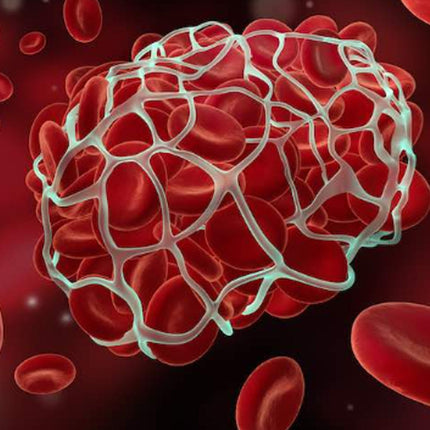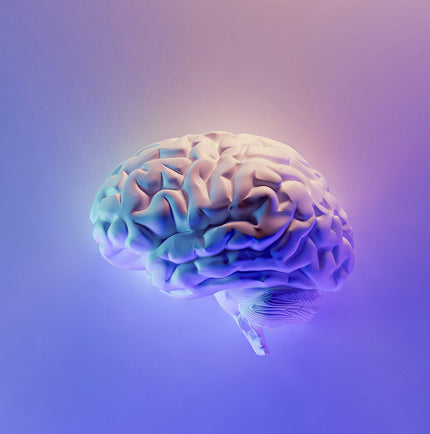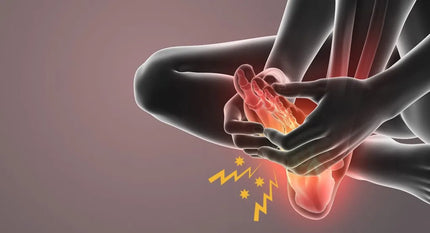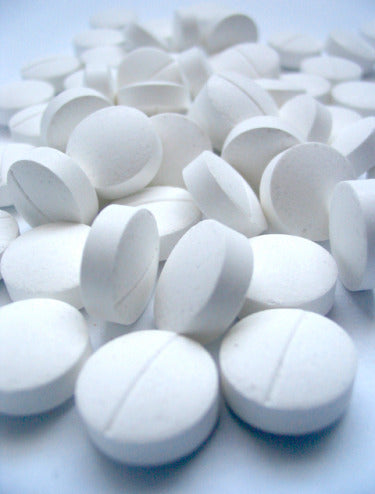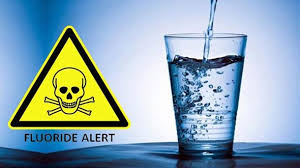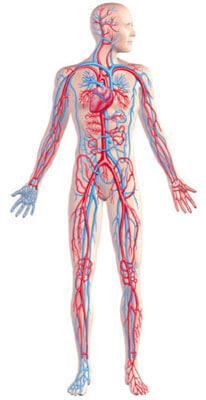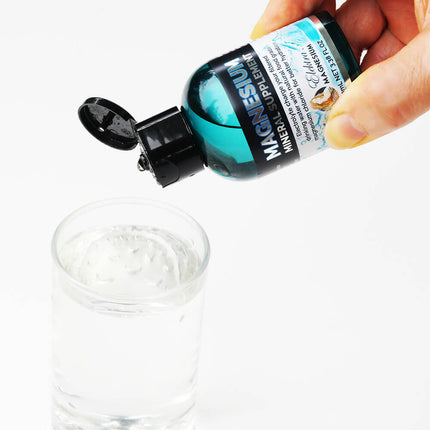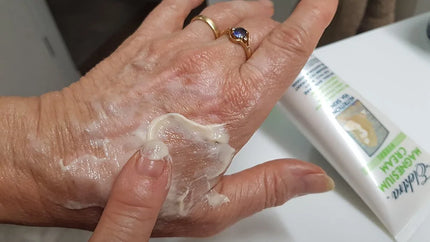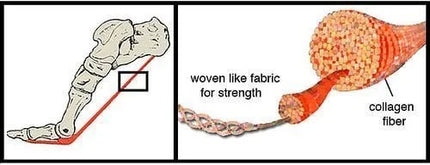Tax included and shipping calculated at checkout
The word 'transdermal' refers to elements passing through the skin, that is, either exiting or entering.

The epidermal layer of the skin is a membrane with channels that open and close as a response to various stimulants. For instance, when you perspire your sweat glands release perspiration which is mostly made up of water, electrolytes and some waste products. If there is a lot of heat a small amount of the skin ceramides (solid fats), which are part of the skin barrier, can melt (fluidify). This means that we can also lose some oils that protect the skin barrier. Athletes will notice this effect more. After a big training session the skin feels more sensitive and open to the environment until it can restore protective cholesterol fats.
What can pass through the skin - the epidermis?
Transdermal magnesium absorption means that magnesium ions (electrolytes) can pass into the epidermis (outer layer) of the skin, which acts as a nutritional reservoir until the tiny capillaries of the dermis underneath can absorb nutrients as required. From this skin reservoir the body may also absorb the vitamin D it made when you got some sunshine on your skin.
You can also use the transdermal method to absorb iodine (Lugols Solution or generic). For example, after painting the soles or toes of your feet (or a patch somewhere else) with iodine before you go to bed, if the colour has disappeared the next day, then your body has been hungry for iodine. Do it for a few days until the colour remains in the skin the next day. This is how you know you have enough iodine for the time being. Keep testing regularly to stay topped up because iodine is another nutrient in short supply in foods these days. Did you know that the breast tissue competes with the thyroid for iodine? I sometimes put iodine under my breasts and track around the lymph, which seems to be a highly absorbant area. Note that iodine is used by the body as a natural disinfectant and pathogen killer, and the lymph circulation is a protein waste disposal system which can become vulnerable to pathogens and consequential inflammation.
Transdermal absorption of nutrients is a wonderful way to supplement-feed the body when you are not sure how much is enough, as the process of nutritional absorption is self-regulating. On the other hand, one should be mindful of avoiding synthetic chemicals that the body does not know how to treat and that can get access to the body's interior via the skin.
We have been indoctrinated for generations to believe that oral consumption and digestion of foods and tablet supplements (or drugs) were the only way for nutrients and drugs to access the body, except for medicines which can be injected. However, transdermal absorption of medicines has been a recent development with the popularisation of nicotine patches or progesterone cream. The success of these options has led to further investigation regarding the use of transdermal drugs.
Most of the medical community have not been trained extensively in transdermal absorption, except insofar as they do now prescribe transdermal nicotine patches, progesterone cream and other transdermal drug products. Drugs can also be delivered via inhaling of puffers because the lung sacs have very sensitive membranes which offer an efficient route for blood vessel uptake. We have also accepted that essential oil aromas can penetrate the body via the epidermis, as well as inhalation of steam diffusion.
Magnesium ions (electrolytes) are essential for mitochondria to make ATP electrical energy for cell membranes


Magnesium uptake into cells fuels the mitochondrial production of ATP electrical energy and so directly influences metabolism. Magnesium enables us to plug into our bio-electrical power point. Cell membranes, including the membranes of skin cells, depend on magnesium ions, and readily take them up when available. Magnesium is actually an integral part of the cell membrane, as it delivers the right charge for the integrity of the lipid bilayer, which then regulates calcium influx and efflux via protein channels as required for tension and relaxation.
Magnesium helps to maintain good hydration via its hydration shell and affinity for water. It attracts water molecules and this fusion helps the electrolyte charged water to enter cells and hydrate them better, thereby promoting electrical conductivity and detoxification. It also acts as a powerful anti-inflammatory, as well as a muscle relaxant to recover from stress, heart arrhythmia and cardiovascular tension. Magnesium dampens down the affect of adrenalin to calm down the central nervous system via its calcium antagonism. It co-factors with numerous other nutrients and is an electrolyte you cannot do without!

Why does magnesium oil feel slippery?
Magnesium oil is a concentrated solution of magnesium chloride hexahydrate (salt flakes) and water which forms a slippery oily texture, but it's actually water-based. The water feels slippery because the water molecules are more tightly ordered with less spaces due to the magnesium charge, which influences water molecules to form hexagonal planar structures, which slide over one another, resulting in the slippery feeling.
Pure magnesium oil can sit on the skin for too long causing a prickly irritation, especially if skin is sensitive and lacks enough natural fats to buffer the salts. The skin barrier can exclude salts of high concentration, as it needs a certain window of concentration to absorb the dissolved ions. The skin regulates a balance between salts, moisture and fats. It can absorb and stop absorbing as required. It works like a self-regulating nutritional reservoir. Some of the pure magnesium oil can penetrate by combining with natural oils in the skin, however this is dependent on the amount of natural fats (lipids) available. The skin (like the cell membrane) is thus 'lipophilic'. The more fatty the skin, the more potential magnesium ions it could absorb into the collagen structure of the epidermis. The remaining magnesium oil (salt) that couldn't get through because not enough fat was available, is left on the surface of the skin and becomes irritating.
The best way to ensure optimal transdermal magnesium uptake is to combine magnesium chloride with plant oils, such as in Elektra Magnesium Cream which has a certain concentration and balance so as to facilitate easy transition of magnesium, moisture and lipids into the epidermis. In this form it can be absorbed more efficiently into the epidermal layer where it helps to plump up skin cells with extra hydration and protection of the skin barrier, leaving the skin with a healthy glow and condition. This makes Magnesium Cream an excellent anti-ageing cream, as well as a muscle relaxation massage cream.
In addition to providing magnesium's relaxation effect to muscles when massaged in, Magnesium Cream also works as an anti-ageing cream for face and body to promote a younger looking complexion. It contains food grade magnesium chloride infused in natural plant oils, extracts and butters containing vitamin C, polyphenols and other antioxidants. When applied regularly every day, these nutrients help the body to build collagen structures, which can hold an optimal amount of oil and water, resulting in a smoother, younger looking and more hydrated complexion.
The epidermis in this way acts as a nutrient reservoir that the blood vessels of the dermis have access to when the body needs a top up.
We have only just begun on this journey of investigation, research and development of magnesium body care products, but the results since 2009 have been most impressive. There are some early studies listed below on transdermal magnesium absorption - the master mineral electrolyte. We hope that in the future many more will follow so that we can continue to improve our knowledge of the mechanisms of action.
Blood or urine tests are not accurate indicators of magnesium levels in tissue cells
It's a good idea not to rely on a magnesium blood test to determine your body's magnesium status. 99% of magnesium in the body is stored in the tissue cells of muscle and bone, and not in blood plasma, which contains less than 1%. You can't get an accurate measurement of magnesium in tissue cells with just a blood test (neither plasma nor RBC) because the tissue cells can sacrifice their stored magnesium to top up the blood level and keep it in a narrow and strict normal range.
"The total serum magnesium concentration, imperfect as it may be, is the entry level test to evaluate magnesium status in humans. The serum magnesium concentration is primarily controlled by the kidney and the dietary intake of magnesium. With the exception of bone, the total serum magnesium concentration has not been shown to correlate with other tissue pools of magnesium...
The total RBC magnesium concentration does not correlate with other tissue pools of magnesium."
When magnesium levels get too low in blood then you can be sure that tissue levels are extra low! Magnesium charge is necessary to hold our protein structures together (including enzymes, hormones, collagen and DNA), and to provide sufficient charge for cell membrane integrity which controls calcium movements. You could be experiencing magnesium deficiency symptoms like cramps or hypercalcemia, but still have magnesium show in the normal range in blood tests. Without a tissue magnesium test you won't know the real magnesium status of the body. However the symptoms are usually a pretty accurate tell-tale sign of deficiency.
Stress is a major trigger for loss of magnesium stores, but some people have a genetic predisposition to excessive loss of magnesium via urine (hypermagnesuria), even without a lot of stress. The assumption that many have held is that if you are excreting excessive magnesium in the urine then your tissue cells must be replete because the body only excretes excess. This is not the case if the kidneys are 'leaky' and thereby losing too many alkaline minerals like magnesium. Like blood tests, the measurement of magnesium in urine is not always an accurate indicator of stored magnesium.
Transdermal (skin) absorption VS via the gut wall
At least people can feel secure in the scientific consensus that there is no danger of overdose with the transdermal approach of natural Magnesium Cream or Lotion application - as there would be if you applied transdermal drugs and chemical creams daily. With natural magnesium cream and lotion you can feel a great skin care benefit, as well as tangible muscle relaxation results when used in massage. There are also no contra-indications with medications. The skin barrier can only take up a certain amount of magnesium salts, limited by the available fats, and limited also by the size of the epidermal reservoir. There is only so much of these nutrients you can get into the skin layer at any one time, which is nowhere near enough to cause any kind of 'overdose', as could happen with a transdermal or oral drug, or via injection.
Oral magnesium supplementation is often used by doctors to alleviate drug side effects because many drugs (particularly poly-pharmacy) can rob the body of magnesium stores causing cramps and other magnesium deficiency symptoms. However tablets and powders are very inefficient delivery methods to get optimal magnesium absorption, due to poor digestion. Some of the magnesium gets through to the interior of the body, but more than half is expelled via the digestive system, as the stomach may not have enough stomach acid to digest the compound, or the gut wall rejects high concentrations of magnesium. It has been shown that the amount of magnesium ions more optimally taken up via the gut wall is equivalent to about what would be in natural foods and spring water. As this concentration increases it is excreted more and more.
A study published in the European Journal of Clinical Nutrition reported that, "The fractional absorption rate is high at low magnesium load and decreases exponentially with increasing carrier amounts. Several authors have outlined that higher bioavailability is observed when a given amount of magnesium is distributed over a day rather than being consumed in a single bolus."
Elektra Magnesium Cream is gaining an excellent reputation as a natural alternative for calming and reducing inflammation, as well as providing superior skin care. The relaxation benefits from magnesium massage to alleviate cramped muscles are tangible and fast-working, and without negative or toxic side effects. The use of heat to increase circulation also enhances the effects of transdermal magnesium and the body's ability to access it. It's a matter of natural nutrition being efficiently and effectively delivered via skin, and obeying the body's natural regulatory systems.
There is a growing awareness in the market of the need to eat and absorb natural and organic food so as to avoid chemicals and excessive denaturing processing. This also applies to absorption via skin - the largest organ of the body. Elektra Magnesium products do not contain synthetic petrochemical or toxic ingredients, but are made with only plant-based extracts, oils and butters infused with natural food grade magnesium chloride salts. Toxic elements commonly found in personal care products like synthetic parabens, pthalates and petrochemicals can be absorbed transdermally, and can accumulate in the tissue cells of organs, muscle and bone over time. Many of these chemicals are known endocrine disruptors and carcinogens.
It is recommended to read labels and become a conscientious consumer, mindful of what you are putting into your body. There are more magnesium body care products popping up in the marketplace recently, which contain petrochemical-derived synthetic ingredients, including petrolatum, petroleum jelly, paraffin, dimethicone, phenoxyethanol, parabens and pthalates. This list is by no means exhaustive. If you are not sure about an ingredient, then look it up a reliable skin care ingredient website that specialises in this area, such as www.safecosmetics.org. As an exercise look up phenoxyethanol, a common synthetic (not natural) ingredient. Safe Cosmetics lists studies that show, "Skin exposure to phenoxyethanol has been linked to allergic reactions ranging from eczema and hives to anaphylaxis."
Transdermal drug delivery as an alternative to tablets
A lot more research is now being undertaken by pharmaceutical companies to deliver drug therapy via skin. The reason they are investing more into this method of drug delivery is because people's digestive systems can become so compromised that they are unable to digest tablets enough to receive the intended dose from the drug. The main issue they have encountered in their transdermal research however is that they can't effectively control the exact dose via skin. With so many variations in skin type they can't control uptake enough. Is it too much or not enough? To help drugs get in through the skin they use chemical 'partners' called 'penetration enhancers'. These include mainly alcohols or sulphates. Too many alcohols and sulphates can break or damage the skin barrier - as is seen with excessive use of hand sanitizers and reactions like dermatitis, psoriasis or eczema.
In addition, the transdermal drug product needs to be lipid based, as the epidermis is lipophilic. The fatty protective layer of the skin keeps water out, so that water-based products are repelled. To get water-based drugs into skin requires emulsifiers. These ingredients can be irritating for skin - especially if it's not in good condition. Compromised inflamed skin such as in psoriatic skin tends to have a shortage of fatty barrier protection and is more open to the atmosphere and absorption of substances without regulation. So these people can get way too much of a transdermal drug.
Some people have a very oily skin with tight junctions, or a thicker denser epidermis, for example the skin of men compared to women. This large variability in skin types makes it very difficult to deliver an exact dose of a drug transdermally. Not enough drug penetration is ineffective and too much is detrimental when you are dealing with potent chemicals - especially when they add penetration enhancers to open up the skin barrier.
Benefits of transdermal magnesium - 'Nutrition Via Skin' - What goes on, goes in...
Using ionised magnesium, that is natural magnesium chloride salts dissolved in water, allows the epidermis to soak up the magnesium without further digestion. This is because magnesium chloride solution is already in the right form for cells to take up. Inside cells you will find predominantly ions of chloride, potassium and magnesium. As natural magnesium chloride salts are not a drug, the body can regulate uptake. When you have had your fill, it switches off absorpion. Half an hour of magnesium soaking in the bath or with a footsoak usually provides optimal uptake. After that, absorption slows down and stops - until later on you may need more, as magnesium is constantly being used by the body as a macro nutrient.
 The great benefit of transdermal magnesium is that magnesium is absorbed via the skin much more efficiently than if you were to ingest tablets or powders, which are hard to digest and absorb properly through the bowel wall, and especially if the digestive system is compromised by IBS or leaky gut, which means minerals are lost too quickly. Also, the older we get the less stomach acid is produced, which makes it more difficult to break down magnesium tablets in the stomach. Some people (especially seniors) can have obstructions or built-up waste residues on the gut lining or in the twists and turns of the bowel, which can hinder absorption of nutrients. Heavy metals, fluorides or oxalates can also bind up and steal your minerals.
The great benefit of transdermal magnesium is that magnesium is absorbed via the skin much more efficiently than if you were to ingest tablets or powders, which are hard to digest and absorb properly through the bowel wall, and especially if the digestive system is compromised by IBS or leaky gut, which means minerals are lost too quickly. Also, the older we get the less stomach acid is produced, which makes it more difficult to break down magnesium tablets in the stomach. Some people (especially seniors) can have obstructions or built-up waste residues on the gut lining or in the twists and turns of the bowel, which can hinder absorption of nutrients. Heavy metals, fluorides or oxalates can also bind up and steal your minerals.
Magnesium supplements on the market can vary greatly in bio-availability, however magnesium chloride in solution was found to be the most easily absorbed by the body. According to the study titled: Bioavailability of US commercial magnesium preparations [1]
"Results indicated relatively poor bioavailability of magnesium oxide (fractional absorption 4 per cent) but significantly higher and equivalent bioavailability of magnesium chloride."
Magnesium in high concentration in the gut also causes loose stool, diahrrea or irritation of the lining. In this case the magnesium is lost very quickly. Chelated magnesium products don't have such a bad reputation for causing diahrrea, but have to go through the digestive process and be able to pass through the gut wall, which can still be an obstacle.
You are what you can absorb!
The gut wall is naturally well suited to optimally absorb the magnesium concentration we usually find in mineral waters or foods. The higher the concentration of magnesium, the more it follows a curvilinear diminishing rate of absorption.
"Although absorption increased with each increment in intake, fractional magnesium absorption fell progressively (from 65% at the lowest to 11% at the highest intake) so that absorption as a function of intake was curvilinear" [2]
Magnesium chloride has been found to be the most bioavailable form of magnesium and when dissolved in water can be easily taken up by cells without further absorption. If you add the food grade magnesium flakes to filtered drinking water you can make an hydrating and pleasant-drinking mineral water, however on its own it is not enough of a supplement for people that have high-end magnesium needs. The magnesium does enhance the hydrating capacity of the water, and for that reason we recommend to add it to the diet.
If dietary magnesium is not enough, and you have high-end magnesium needs, you can get more magnesium by absorbing it transdermally. This means that magnesium gets to where it is needed faster without having to go first through hours of the digestive process.
Oxalates, acidosis and problems with digestion can interfere with nutrient absorption by cells
Some people are misled by the assumption that the more magnesium there is in a food, the more will be absorbed into cells. This is not the case. We are what we can digest and absorb into cells, and that's when we can run into trouble. Certain plants like spinach can contain large amounts of magnesium but also oxalates, which can block the uptake and use of the magnesium. It somewhat helps to cook the spinach to reduce the effect of oxalates (oxalic acid).
Drinking a lot of raw juices can increase oxalates, which can irritate those with oxalate sensitivity. Oxalates can get bound up with calcium, magnesium and other minerals, which then make the oxalate compound unable to be absorbed by cells, and so excreted via the faeces. In a sense, oxalates rob you of minerals, so you need a lot more minerals to compensate if you are exposed to more oxalates. Although a healthy diet can't avoid them altogether, we can do things to mitigate their acid-promoting effects, like taking in more citrate, bicarbonate of soda, chloride and B group vitamins (especially B6). B6 is also a great partner for enhancing the effects of magnesium. This is especially important for those with certain genes that make their own body produce oxalates so that they become hypersensitive to them. People with oxalate sensitivity may have more symptoms of acidosis and may need extra pH buffering aids and oxalate competitors.
Magnesium oxide may have more elemental magnesium, but most of it is unavailable for uptake by cells
Another example where people can be misled is the larger amount of elemental magnesium contained in the supplement of magnesium oxide. Because this compound is not very water soluble, it is not readily taken up by cells and commonly only 4% is bioavailable. You need ample stomach acid to be able to digest the magnesium oxide so you can use at least some of the elemental magnesium. When magnesium oxide mixes with the hydrochloric acid of the stomach it is converted to magnesium chloride and water. This excess water can very quickly liquefy your stool and cause you to run to the bathroom! Magnesium oxide is often used as a bowel purge to alleviate constipation for this reason. If you get diarrhea from the higher concentration of magnesium you have lost it too early and it defeats the purpose of consuming it. In addition, the older we get the less stomach acid we make and the harder it is to break down the tablets. If you are ingesting magnesium oxide tablets they will contain fillers and binders which can also interfere with magnesium absorption.
"Results indicated relatively poor bioavailability of magnesium oxide (fractional absorption 4 per cent) but significantly higher and equivalent bioavailability of magnesium chloride." [1]
Traditional balneotherapy - soaking in mineral water
Transdermal magnesium absorption has been practised for thousands of years as people discovered that when they soaked in mineral-rich hot springs they experienced relief from arthritic pain and had a rejuvenation effect. This process is called ‘Balneotherapy’ and has been tested extensively in studies regarding artheriosclerosis, cholelithiasis of diabetes, and more.
After soaking the skin in warm-hot magnesium water for 20-30 minutes the epidermis softens and opens up to allow some of the water to hydrate the skin layer. The magnesium ions, being fully dissolved and a component of the water molecule, are taken up inside the skin along with the water. This softening and hydration of the skin also allows stored toxins to be excreted by the skin. The magnesium chloride solution has had sodium removed, so it's not the same as bathing in high concentration Dead Sea salt water with high sodium, which can create electrolyte imbalance because high sodium steals water - that is, contributes to dehydration. Magnesium on the other hand attracts water and increases hydration via its larger hydration shell. So ideally we want to favour more magnesium exposure transdermally.
Now you can have a magnesium soak in the comfort of your own home. Try a footsoak with a tablespoon of Elektra Magnesium Flakes for half an hour, or a bath with a cup of flakes. You can also make an alkalising mouth wash that inhibit acid-forming bacteria, which helps to strengthen teeth and alleviate sensitivity.
Magnesium can also inhibit the build-up of unwanted calcium deposits in the soft tissues of the body (vessel linings, kidney tubules, muscles, ligaments etc), because magnesium (via parathyroid hormone) causes the excess calcium to move into the bones to strengthen bones. In fact, low magnesium is associated with osteoporosis, as well as stiffening of the endothelial linings of blood vessels (which causes high blood pressure). The lower the magnesium in tissue cells, the more calcium tends to leach out of bones and move into deposits in soft tissue. Scientists believe this is likely due to calcium being used by the body to regulate acidosis, as it has an alkalising effect (like magnesium). In the absence of magnesium however, calcium can become a 'bully'. Magnesium works as a controller of how calcium is used in the body.
Topical magnesium - skin and muscle care
Our high concentration magnesium (water-based solution), Magnesium Oil Spritz with pure essential aromatherapy oils, is also ideal for massaging into tight muscles or sore joints for relaxation and stimulation of blood flow, which supports the body's healing. It delivers the highest concentration of magnesium at 60% magnesium chloride hexahydrate. 6 sprays deliver over 300mg elemental magnesium. It is recommended for more acute conditions and combines well with the other magnesium products.
Elektra Magnesium Moisturizing Cream with specially blended rich natural plant oils infused with magnesium chloride hexahydrate (15%) keeps the skin well hydrated, soft and supple. It has high fat content for skin barrier protection. A dessertspoonful delivers approx 300mg elemental magnesium. Use it all over the body, face and even as an underarm deodorant. Two teaspoons (enough to cover the whole body) deliver 300mg of magnesium.
People with very oily skin may find the cream slower to absorb, in which case application of Magnesium Charge Lotion (30%) might be more suitable because it has double the magnesium of magnesium cream, but less fats. This means that less needs to be applied to get the same magnesium, ie. one teaspoon delivers 300mg elemental magnesium.
How much magnesium do I need?
Doctors have found that some people need up to 1000mg of magnesium per day if they have severe magnesium deficiency caused by high stress, excessive physical exercise, sleep deprivation, burns, operations, traumas, medications, drugs or excessive alcohol. In this case they would need to combine a number of the above methods to get the higher amount, and idealy spread out between morning and evening. The more opportunity you give your body to absorb what it needs, the better. The body takes up the mineral ions it needs at that time. Absorption stops when saturation (equilibrium) is reached. The body is constantly needing a top-up. Just like you can't drink a whole week's worth of water on one day, you also need to apply and consume magnesium nutrition daily for optimal benefit. The great thing about using the epidermis to hold magnesium and other nutrients is that this reservoir can make available a controlled amount that the body can selectively take up over time.
Think of transdermal absorption as offering your body a ‘smorgasbord’ of magnesium minerals and trace elements to choose from to cater for what it needs. You don’t know exactly how much your body needs, but it knows. This need will also change from day to day depending on stresses (as magnesium is wasted and lost via kidneys under stress). Every individual has differing needs and those needs will also fluctuate from day to day. When your body recovers its proper magnesium reserves, the symptoms of magnesium deficiency disappear.
Symptoms of Magnesium Deficiency can include: heart arrhythmias, chronic fatigue, headaches, muscles cramps, twitches and restless legs, acute stress response, irritability and anxiety, insulin and blood sugar (metabolism) disorders, dry skin conditions like dermatitis, eczema and psoriasis, joint pain, inflammation, immune system disorders, vascular tension and high blood pressure and hypercalcaemia (depositing excess calcium in the soft tissue and joints).
by Sandy Sanderson © 2018-22
PUBLISHED STUDY REFERENCES:
Effect of topical magnesium application on epidermal integrity and barrier function . [3]
https://espace.library.uq.edu.au/view/UQ:381711
Effect of transdermal magnesium cream on serum and urinary magnesium levels in humans: A pilot study [4]
https://www.ncbi.nlm.nih.gov/pmc/articles/PMC5389641/
Intravenously and Topically Applied Magnesium in the Prevention of Arterial Thrombosis [5]
https://www.thrombosisresearch.com/article/S0049-3848%2800%2900215-2/abstract
Preliminary study of transdermal permeation of magnesium cream formulations across skin [6]
https://www.researchgate.net/publication/240614002_Preliminary_study_of_transdermal_permeation_of_magnesium_cream_formulations_across_skin
Effects of transdermal magnesium chloride on quality of life for patients with fibromyalgia: a feasibility study.[7]
https://www.ncbi.nlm.nih.gov/pubmed/26343101
- Firoz, M. and M. Graber, Bioavailability of US commercial magnesium preparations. Magnes Res, 2001. 14(4): p. 257-62.
- Ranade, V.V. and J.C. Somberg, Bioavailability and Pharmacokinetics of Magnesium After Administration of Magnesium Salts to Humans. American Journal of Therapeutics, 2001. 8(5): p. 345-357.
- Chandrasekaran, N., Effect of topical magnesium application on epidermal integrity and barrier function 2016, The University of Queensland. p. 84.
- Kass, L., et al., Effect of transdermal magnesium cream on serum and urinary magnesium levels in humans: A pilot study. PLoS ONE, 2017. 12(4): p. e0174817.
- Toft, G., H.B. Ravn, and V.E. Hjortdal, Intravenously and Topically Applied Magnesium in the Prevention of Arterial Thrombosis<sup>☆</sup>. Thrombosis Research, 2000. 99(1): p. 61-69.
- Sang-ngern, M., et al., Preliminary study of transdermal permeation of magnesium cream formulations across skin. 2012.
- Engen, D.J., et al., Effects of transdermal magnesium chloride on quality of life for patients with fibromyalgia: a feasibility study. J Integr Med, 2015. 13(5): p. 306-13.
By Sandy Sanderson ©








